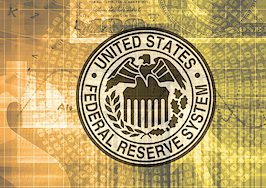- Refis are unbelievably sensitive to changes in interest rates and have nothing to do with the housing market itself.
- The MBA weekly purchase application figure has been remarkably stable in the last five years. This week’s “seasonally adjusted” jump is meaningless because it followed slow holiday weeks impossible to adjust for.
- These are MBA-member applications, not including applications taken by banks or brokers.
- What really happens to purchase applications when rates rise? At this instant, rates are falling a hair, but if the Fed stays on course, then mortgage rates will rise this year.
Every week, the Mortgage Bankers Association releases its count of mortgage applications for new loans, both refinance and purchase. It is worth watching, but carefully, and yesterday’s report raises an important issue.
Strip the refi fraction out
In an era of click-candy headlines, always strip the refi fraction out of the MBA’s count. Refis are unbelievably sensitive to changes in interest rates and have nothing to do with the housing market itself.
Lower rates do help the overall market, but only big drops. Refis are triggered by rate declines as small as one-eighth of 1 percent — about what we’ve seen in the last 10 days, and we may get another eighth in the next week. That’s enough for a huge surge in refis.
Seasonally adjusted mortgage application jumps are meaningless
Second, the MBA weekly purchase application figure has been remarkably stable all through the non-recovery of housing in the last five years.
This week’s “seasonally adjusted” jump is meaningless because it followed slow holiday weeks impossible to adjust for.
As the mix of application-takers changes, so does the data
Third, these are MBA-member applications, not including applications taken by banks or brokers. Mortgage brokers have been nearly wiped out by new regulations — small, low-overhead operations cannot possibly keep up with today’s compliance burden. We spend more time each day now talking about compliance than how to make loans.
Banks have never been particularly good at retail mortgage lending (Wells Fargo the exception, fading now). But, as the mix of application-takers changes, so does the implication of the data. Therefore another reason to ignore small changes or seasonal ones.

agsandrew / Shutterstock
What really happens to mortgage applications when rates rise?
The related story … what really happens to purchase applications when rates rise? At this instant, rates are falling a hair, but if the Fed stays on course, then mortgage rates will rise this year.
My whole professional life I have heard that rising rates cause buyers to buy faster, sooner. Let’s watch that this year. All these years, I’ve never once had someone in my office say they are going to hurry because rates are going up.
Hurry to lock — sure. Be careful about expiration — right. But accelerate plans to buy? Not once. Ever.
Most folks aren’t dumb. Most people understand that the Fed’s purpose in pushing rates up is to slow things down. Why hurry in a slowing market?
We’ll see. First, we’ll see if the Fed stays on track, which has been more in doubt every new day of 2016.
Lou Barnes is a mortgage broker based in Boulder, Colorado. He can be reached at lbarnes@pmglending.com.







